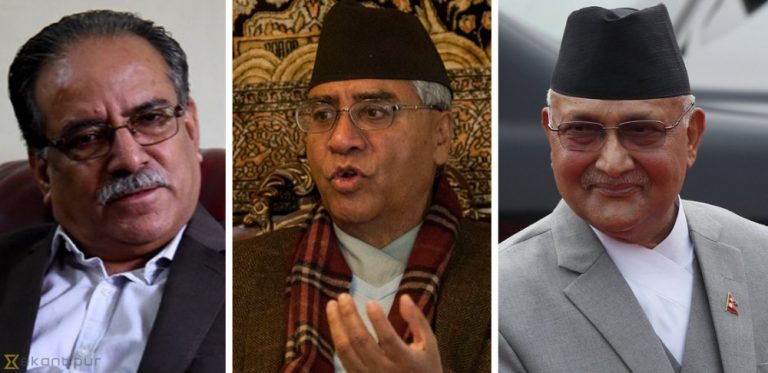
Is it necessary for our leaders to be proficient in English?
If you’re reading this article hoping you’d actually find out PM Oli’s IELTS score, let me clarify that I do not happen to know it. But seriously, like the thousands of youths flocking to countless consultancies to achieve a minimum band or more for acceptance into international universities, have you ever wondered, if our leaders were to sit for the same International English Language Testing System, also popularly known as IELTS, what would their scores be?
For the ones who’ve watched PM Oli’s speech at the UNGA this year, he is surprisingly an 8 out of 9 in speaking, for the clarity of tone, use of vocabulary, fluency and the relevance of matter with which he spoke at the international forum. Pardon the occasional stammering cause we know it was a lengthy speech and English is so not our first language. Gagan Thapa, the Former Minister of Health and Population, for his interview with the World Health Organization South-East Asia Region (WHO SEARO) is our second pick for this list, as he’d probably score a 7 for confidence and sheer know-how of the topic.
But does their level of English proficiency correlate to their political and diplomatic expertise? Clearly not! While there is no denying that Former Prime Minister Sher Bahadur Deuba is the most politically active and knowledgeable person in the field, his speech at the World Leaders’ Forum at Columbia University is the most painful 56 minutes 25 seconds of repetitive words, irrelevant answers and constant aaaaa..ummm..hmmmm, you’ll ever hear in a delegate’s speech (no offense…its just an opinion).
Back to our topic, is English important particularly for those leaders who constantly travel abroad to represent the country in the international platform? If it is, then why do leaders from non-English speaking countries notably from Japan, China and even India, choose to speak in their own language while deliberately hiring a translator to deliver their speech to the audience in English.

It is important to understand that language is just a method of human communication used to convey information, opinion and ideas. Being multi-linguistic is a plus point in this increasingly multicultural world, however it is definitely not the means to an end, as long as one is comfortable and confident in that one language he/she speaks.
Be proud of your language!





